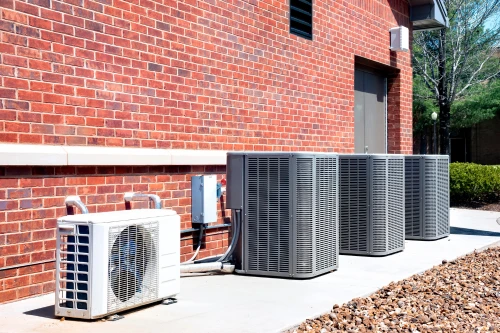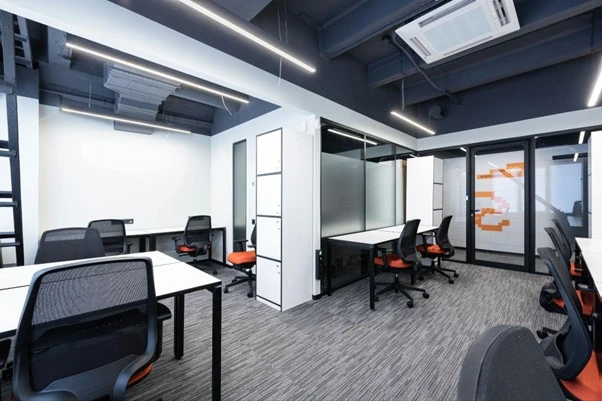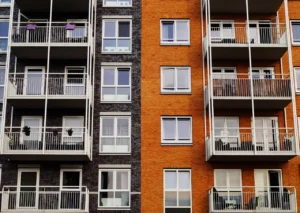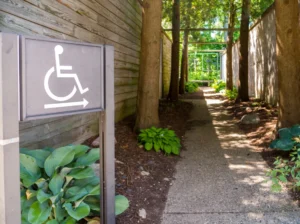
How to Choose the Right HVAC System for Your Home or Business
The choice of a good HVAC (Heating, Ventilation, and Air Conditioning) system is not a trivial choice as far as comfort, energy levels, and energy costs of homes and businesses over the long run are concerned. There are many alternatives in the market, and more attention has been given to the use of environmentally friendly technology, to identify the most appropriate one, it is necessary to understand the kind of your requirement, the type of systems you can adopt, HVAC system maintenance, and the specifications that can offer the best value.
 With this guide, we will go through the key aspects that should be remembered when selecting a perfect HVAC system to use in your space.
With this guide, we will go through the key aspects that should be remembered when selecting a perfect HVAC system to use in your space.
Understand Your Needs
To get the right HVAC system, what you need is to first analyse your personal needs and understand HVAC systems, how they work, something companies like Chill Heating & Cooling can help clarify. Size of the space, layout and occupancy, local climatic conditions, and quality of insulation are some of the factors that determine, to a large extent, what type of system will be most effective to work with.
In the case of residential premises, the biggest issues are usually comfort and smooth running operations. In commercial applications, though, systems may have to support greater ductwork, varying occupancy loads, and zoning to suit varying temperature needs on an office-to-office, floor-to-floor basis.
Types of HVAC Systems
Knowing the different kinds of HVAC systems will assist you in making a wise decision. The most common are the following:
1. Split Systems
They are the most conventional domestic systems and comprise two prominent elements- an internal unit (heating system /furnace; air handler) and the outdoor unit (air conditioner/ heat pump).
2. Packaged Systems
Packaged units are designed to collect all elements into an outdoor unit, which makes such a unit absolutely reasonable in the case of a house or a small business property with little indoor space. These systems are simple to install and maintain, but they can be a little less efficient than split systems.
3. Mini-Split Systems
Ideal where there is a lack of duct system, ductless systems installed in homes or businesses operate by using a compressor stationed outside and an air handling unit inside.
4. Heat Pumps
The heat pump is multipurpose and offers both heating and cooling. In moderate climates, they are energy efficient; they operate by moving heat instead of producing it.
5. Hybrid Systems
The systems are a combination of a furnace and a heat pump, which alternate with each other automatically depending on the temperature. This gives comfort, coupled with energy savings in zones that have fluctuating climates.
Energy Efficiency and Cost Considerations
Energy efficiency is one of the key elements in the process of HVAC system evaluation. 76 million homes in the US use some form of air conditioning system. More efficient systems may be more expensive to acquire, but long-term savings are achieved due to reduced utility bills. Seek the systems that are rated by:
- SEER (Seasonal Energy Efficiency Ratio)
- AFUE (Annual Fuel Utilization Efficiency) of furnaces
- HSPF Heat pumps cooling mode HSPF (Heating Seasonal Performance Factor)
 Besides performance ratings, look at long-term costs such as installation, HVAC system maintenance, repair, etc. Energy consumption can further be optimised by the use of smart thermostats and zoning options, which enable individual heating or cooling of certain parts of the house in a more accurate way.
Besides performance ratings, look at long-term costs such as installation, HVAC system maintenance, repair, etc. Energy consumption can further be optimised by the use of smart thermostats and zoning options, which enable individual heating or cooling of certain parts of the house in a more accurate way.
Additional Features and Technology
A contemporary HVAC system is installed with various highly developed features that make it more convenient, comfortable, and controlled. Some of them you may regard as follows:
- Smart Thermostats: Smart thermostats are programmable and will learn your habits and preferences to make real-time changes in order to save energy by maximising comfort.
- Variable-Speed Blowers and Compressors: These are parts that enable the HVAC systems to operate at a variable speed depending on the requirements, hence making the systems quieter and effective than single-speed versions.
- Air Quality Add-ons: Other systems are equipped with air purifiers, dehumidifiers, or UV lights, which kill bacteria or mold.
- Zoning Systems: Zoning systems can help you regulate different spaces at different temperatures, and are desirable when you are using a bigger home or building, since you are using one portion of the house more than another.
- Noise Reduction Technology: The newest units are designed to operate quietly, especially where a lot of noise is undesirable, like in homes, offices, or schools.
In choosing a system, it should be noted which features are really worth the extra investment in line with your lifestyle or business needs.
Working with Professionals
No matter how well an HVAC system is designed, it will hardly work properly unless it is installed properly. This is why it is necessary to cooperate with skilled HVAC specialists, such as Chill Services. The skilled technicians will:
- Perform the thorough load analysis
- Recommend system type and size
- Install correctly to have the best performance
- Offer regular service and urgent assistance
Find those HVAC contractors who are licensed, insured, and have been certified by NATE (North American Technician Excellence). To be able to make a confident decision, you can read reviews, ask for references, and get several quotes for HVAC system services.
In Conclusion
Selecting the HVAC system to have installed in your residential or commercial property is not all about making the decision that involves a system that is either highly priced or the most advanced one. It is a delicate compromise between what you need, energy efficiency, comfort, and budget.
After learning about the types of systems to select, energy ratings, and features, and collaborating with a reliable expert, you may smartly invest in a system that will promise you cozy mode all year round and long-term savings.













 Accessibility
Accessibility